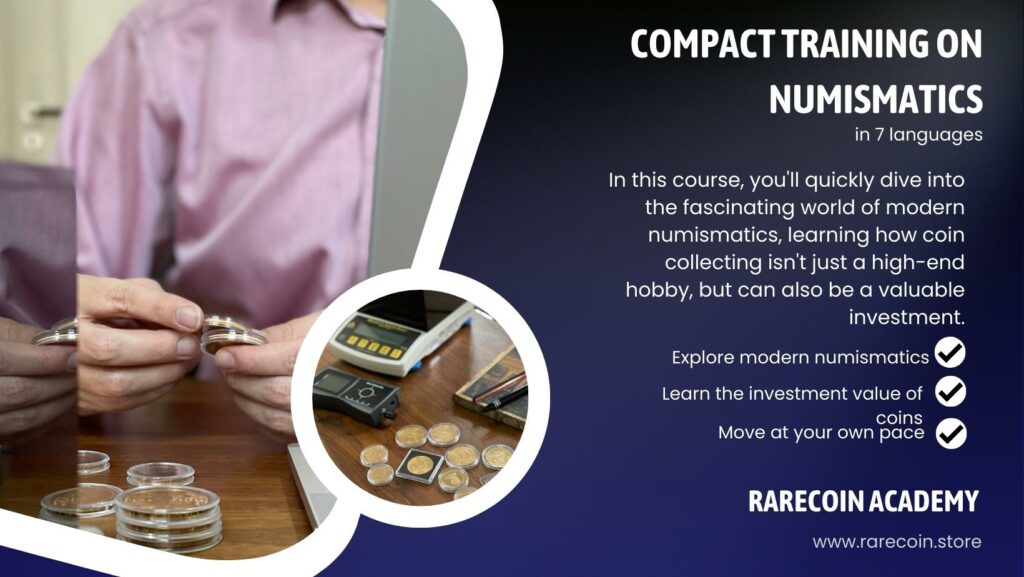
FAQ on the topics: Basics of evaluation
Basics of grading – Importance of grading in numismatics :
Why does grading play such a central role in numismatics? – Because grading helps to accurately determine the condition and therefore the value of a coin. With precise grading, both collectors and dealers can get a clear picture of the coin’s quality.
How does grading affect a coin’s market value? – The higher the grading level, the more valuable the coin can become. In fact, coins in prime condition are often rare and sought after, and this is reflected in their market price.
Who is responsible for the grading and how reliable is it? – As a rule, professional grading service providers or well-trained numismatists take on this task. They rely on standardized criteria to ensure that the assessment is as objective as possible.
Grading Basics – Sheldon Coin Grading Scale :
What exactly is the Sheldon coin grading scale? – It is a 70-point scale designed to assess the condition of coins. “1” stands for heavily worn coins and “70” for absolutely flawless coins.
Why is this scale so common in numismatics? – Originally for US cents by Dr. Created by William Sheldon, the scale has become established as a grading standard for many types of coins because of its clarity and accuracy.
Is the Sheldon Scale different from other rating systems? – While there are other scales, such as those with 100 points, the Sheldon scale has special significance due to its historical significance and wide acceptance in the coin community.
Valuation Basics – Understanding Coin Conditions :
What does the designation “uncirculated” say about a coin? – The label “not in circulation” or “Uncirculated” signals that the coin was never in everyday use, so it shows no signs of wear.
And what characterizes a “proof” coin? – “Proof” coins are collector’s coins that stand out for their shiny finish and fine details and are not intended for regular circulation.
Is there a significant difference in value between uncirculated and proof? – In general, “Proof” coins are often more valuable than “uncirculated” examples, primarily because of their rarity and exquisite minting. However, other aspects such as history or rarity can also influence the value.
Further materials :

